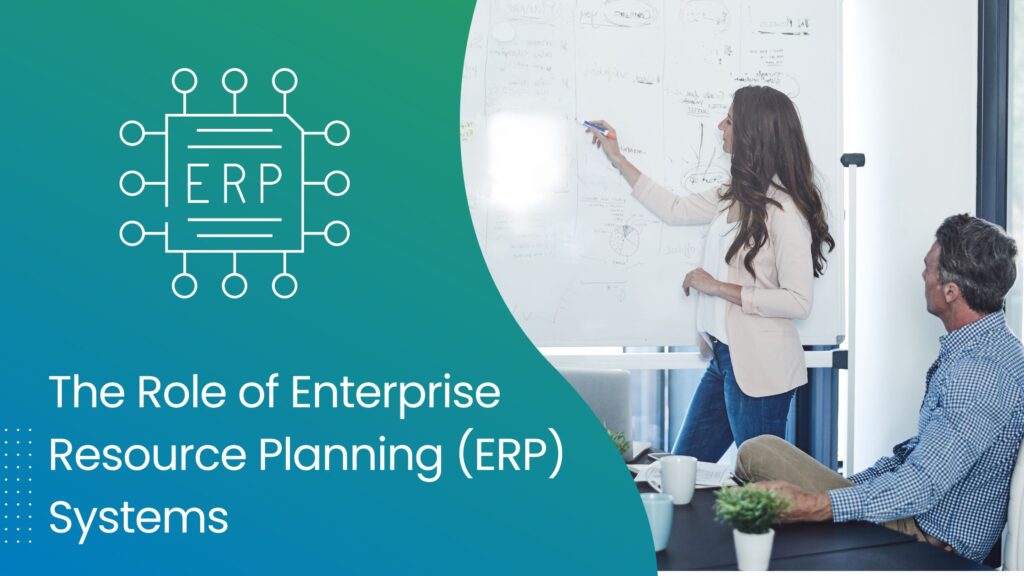Why Timely Invoicing Matters
Timely invoicing is not just a mundane task; it’s the backbone of healthy financial management. When invoices are delayed, it affects the entire cash flow, impacting everything from vendor payments to payroll. Accounting departments often grapple with time-consuming manual processes, leading to errors and inefficiencies. These delays can strain client relationships and even jeopardize future business opportunities.
Understanding the urgency for timely invoicing is the first step towards improvement. It’s not just about getting paid; it’s about maintaining a robust financial system that supports growth and stability. By addressing inefficiencies in the invoicing process, businesses can ensure a smoother cash flow, reducing the stress on financial resources.
For CFOs, the focus should be on creating a system that not only speeds up invoicing but also enhances accuracy and reliability. This not only saves time but also fosters trust with clients, showing them that your business values promptness and professionalism.

Understanding the Need for Consolidated Invoices
Consolidated invoices can be a game-changer for both businesses and their clients. They simplify the billing process by combining multiple charges into a single invoice, reducing confusion and the likelihood of errors. For clients, this means fewer invoices to manage, making it easier to understand their obligations and plan payments.
Implementing consolidated invoices can significantly reduce the workload for accounting departments. It eliminates the need for repetitive data entry and reduces the risk of discrepancies that can lead to disputes. This not only streamlines operations but also enhances client satisfaction, as they receive clear and concise billing statements.
For businesses, the benefits extend beyond efficiency. Consolidated invoicing can improve cash flow management by providing a clearer picture of outstanding payments. It also reduces the administrative burden, allowing accounting teams to focus on more strategic financial tasks. In the long run, this leads to cost savings and improved profitability.

The Role of Enterprise Resource Planning (ERP) Systems
Enterprise Resource Planning (ERP) systems play a crucial role in modernizing invoicing processes. Solutions like Acumatica and NetSuite offer comprehensive tools that automate and streamline billing, ensuring accuracy and efficiency. These systems integrate various business functions, allowing for seamless data flow and real-time updates.
For accounting departments, using an ERP system means less time spent on manual data entry and more time on value-added activities. With features like automated billing, real-time tracking, and customizable reporting, ERP systems empower businesses to stay on top of their financial operations. This leads to faster payments and improved cash management.
ERP systems also enhance collaboration across departments. By providing a single source of truth, they ensure that all stakeholders have access to the same information, reducing miscommunication and errors. This fosters a more cohesive working environment, where everyone is aligned towards common financial goals.
Tips for Implementing Consolidated Invoices
Implementing consolidated invoices requires careful planning and execution. Here are some practical tips to help accounting departments get started:
- Assess Your Current Processes: Begin by evaluating your existing invoicing procedures. Identify bottlenecks and areas for improvement. This will help you understand where consolidated invoicing can make the most impact.
- Choose the Right ERP System: Select an ERP system that aligns with your business needs. Consider factors like scalability, integration capabilities, and user-friendliness. Acumatica and NetSuite are excellent choices that offer robust invoicing features.
- Train Your Team: Ensure that your accounting team is well-versed in using the new system. Provide comprehensive training to help them understand the features and benefits of consolidated invoicing.
- Communicate with Clients: Inform your clients about the transition to consolidated invoicing. Explain the benefits and address any concerns they may have. Clear communication is key to ensuring a smooth transition.
- Monitor and Adjust: Regularly review the performance of your consolidated invoicing process. Gather feedback from your team and clients, and make necessary adjustments to improve efficiency.
By following these steps, businesses can successfully implement consolidated invoicing, leading to faster payments and a more streamlined financial operation.
Case Studies
Real-world examples can illustrate the tangible benefits of consolidated invoicing and ERP systems. Let’s take a look at how some businesses have successfully transformed their invoicing processes:
Case Study 1: A full-service tree firm in Michigan, New York implemented an ERP system to streamline their efforts. Among other benefits, an ERP system improved their invoice accuracy and efficiency by automating complex invoicing previously a 15-20 hour weekly task down to 2 hours. Read the case study here.
KAPPEN TREE
| Company Kappen Tree | Annual Revenue <$5 Million | |
| Location Cass City, MI | Employees 11 to 50 | |
| Industry Utility, Commercial, and Residential Tree Care | NetSuite Modules Deployed NetSuite ERP |
Return On Investment
| Time Savings Payroll processing time decreased from 10-12 hours weekly to only 1-2 hours. | Cost Savings Saved on labor costs by avoiding hiring more staff, all while upholding its dedication to low overhead. | |
| Improved Accuracy Automating complex invoicing, previously a 15-20 hour weekly task, now takes about 2 hours. | Enhanced Compliance Centralizing safety audits and compliance tracking streamlines field employees’ safety regulation adherence. |
Case Study 2: An air filter services business in Phoenix, Arizona struggled with managing recurring service agreements and manually pricing jobs. Utilizing their ERP’s Service Agreement platform simplified and automated the process, reducing the time and effort required to manage recurring jobs and pricing updates 400 hours each month. Read the case study here.
D.L. Sales Corporation
| Company D.L. Sales Corporation | Annual Revenue More than $8 million | |
| Location Phoenix, AZ | Employees 51 to 200 | |
| Industry Air Filter Services | NetSuite Modules Deployed NetSuite ERP system |
Return On Investment
| Transition from QuickBooks and Open Systems to NetSuite ERP D.L. Sales Corporation shifted from using QuickBooks and open systems to NetSuite ERP to address challenges such as manual data transfer and inconsistencies in financial information. | Revenue Growth The company | |
Increased Efficiency
| Improved Business Processes Each month, D.L. Sales Corporation reprices about 800 jobs, with goVirtualOffice’s help and automating this process with the ERP, saving about 400 hours a month. |
These case studies demonstrate the power of ERP systems in revolutionizing invoicing processes. By leveraging technology, businesses can achieve greater efficiency and financial stability.

The Future of Billing
The future of billing lies in technology-driven solutions that prioritize efficiency and accuracy. As businesses continue to evolve, the role of ERP systems in ensuring timely payments and efficient accounting practices will only grow. Automation, real-time data, and seamless integration will become the norm, enabling businesses to leverage insights for strategic decision-making.
Stay Ahead with Innovative ERP Solutions
CFOs and accounting departments must stay ahead of the curve by adopting innovative solutions that streamline operations and enhance customer experiences. By doing so, they position their organizations for success in an increasingly competitive landscape.
Timely Invoicing: A Strategic Imperative
Timely invoicing is not just a logistical necessity; it’s a strategic imperative for businesses aiming to thrive. By understanding the benefits of consolidated invoices and leveraging ERP systems like Acumatica and NetSuite, CFOs and accounting departments can achieve faster payments, enhanced efficiency, and improved client relationships.
Empower Your Business with Technology
The future of billing is bright, driven by technology that empowers businesses to operate seamlessly and make informed decisions. To explore how goVirtualOffice’s ERP solutions can transform your invoicing processes, reach out today and start your journey towards financial excellence.
can refine your approach, make better financial decisions, and ultimately drive your business toward success.
Frequently Asked Questions
Why is timely invoicing important for businesses?
Timely invoicing is crucial for maintaining healthy cash flow, avoiding delays in payments, and preventing errors and inefficiencies in the financial process.
What impact do delayed invoices have on a company?
Delayed invoices can strain cash flow, affect vendor payments, payroll, and client relationships, and jeopardize future business opportunities.
What are consolidated invoices, and how do they benefit businesses?
Consolidated invoices combine multiple charges into one invoice, reducing confusion and making it easier for clients to manage payments. It also reduces workload and improves cash flow management for businesses.
How can consolidated invoicing improve cash flow management?
By providing a clearer picture of outstanding payments, consolidated invoicing reduces administrative burden and improves the overall cash flow.
What role do ERP systems play in invoicing processes?
ERP systems like Acumatica and NetSuite automate and streamline billing, reducing manual work, improving accuracy, and enhancing cash management.
How can ERP systems help accounting departments?
ERP systems reduce time spent on manual data entry, provide real-time tracking, and offer customizable reporting to help accounting teams focus on more strategic tasks.
What are the steps to implement consolidated invoicing?
Steps include assessing current processes, choosing the right ERP system, training your team, communicating with clients, and monitoring and adjusting the process.
How can Acumatica and NetSuite improve invoicing efficiency?
Both ERP systems offer tools like automated billing, real-time tracking, and integration with other business functions, improving overall invoicing efficiency.
What challenges do companies face without an ERP system for invoicing?
Without an ERP system, companies may face manual invoicing errors, delays in payments, and difficulties managing recurring tasks and agreements.
What is the future of billing in business?
The future of billing is driven by automation, real-time data, and ERP solutions, leading to faster payments, strategic decision-making, and enhanced customer experiences.

